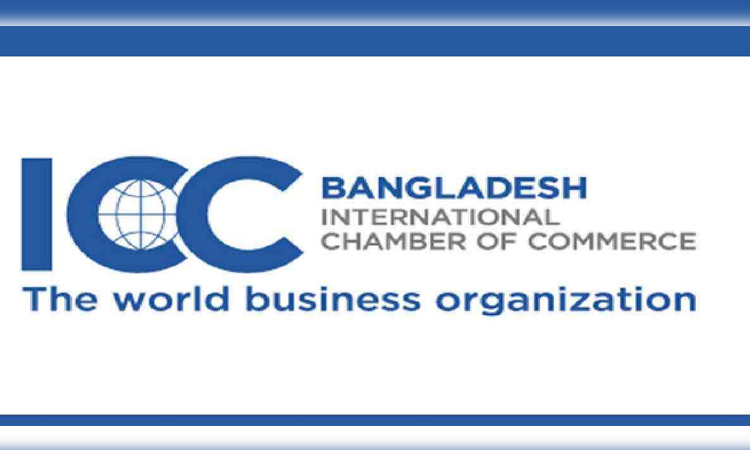News Flash
News Flash

DHAKA, April 30, 2025 (BSS) - Bankers, experts, public officials in the
financial and trade sectors at a dialogue today laid emphasis on
comprehensive reforms in the country's banking sector to overcome the
evolving global financial trends, including potential pressures from the US
tariffs and the stark realities highlighted in the World Bank's recent
Bangladesh Development Update.
They urged both the government of Bangladesh and international bodies like
International Chamber of Commerce (ICC) and World Trade Organisation (WTO) to
come forward to provide solutions.
They have come up with the observations at the dialogue titled "Global
Financial Trends and Reforms: Implications for Bangladesh" organised by
International Chamber of Commerce, Bangladesh (ICCB) in a city hotel.
In his speech, President of ICC Bangladesh Mahbubur Rahman warned that the
full implementation of additional US tariffs could significantly strain the
nation's banking system by reducing export earnings, tightening foreign
currency liquidity and escalating non-performing loans, particularly in
trade-reliant sectors.
"It is therefore imperative for Bangladesh to adopt resilient financial
strategies and regulatory reforms that safeguard economic stability in the
face of these external shocks," he added.
Despite the economy's resilience in many areas, structural weaknesses within
the financial sector remain a critical challenge, the ICC head said.
"This underscores the urgent need for comprehensive banking reforms, enhanced
regulatory oversight and strategic policy interventions to bolster financial
sector confidence and ensure sustainable economic growth in the coming
years," he added.
He remarked that the recent Bangladesh Development Update report by World
Bank warned of a deepening crisis in the country's banking sector, citing
long-standing structural weaknesses, rising non-performing loans (NPLs), and
governance challenges.
Mahbubur Rahman said the report flags that gross NPLs have doubled to over
Taka 2.9 trillion, with nearly half of these concentrated in nine state-owned
banks.
"Capital shortages, slow adoption of international standards and a fragile
legal and institutional framework for loan recovery are among the systemic
issues urgently needing reform," he continued.
Rahman said if these issues are left unaddressed, it may undermine both
financial stability and investor confidence.
"The interim government's recent reform initiatives, in coordination with the
Bangladesh Bank, are beginning to uncover the full extent of these risks," he
said, adding that the message is clear: reform is not optional, it is
essential.
ICC vice-president AK Azad urged ICC and WTO to give attention to the
aftermath of implementation of US tariffs to countries like Bangladesh.
He underscored the need for ICC and WTO interference for the settlement of
insurance claims for the damaged factories during political turmoil. He urged
the central bank to open the exchange rate.
Chair of the ICC Global Banking Commission Florian Witt, in his keynote,
echoed the call for transformative action within Bangladesh's banking sector.
He specifically advocated for the revitalization of state-owned banks through
strategic recapitalization and aggressive NPL reduction.
Witt also proposed a framework that encourages bank mergers to create larger,
more resilient banking groups.
Deputy Governor of Bangladesh Bank (BB) Md. Zakir Hossain Chowdhury said BB
has taken a lot of reform activities recently, but time hasn't come yet to
evaluate the result of the reform.
He said Bangladesh Bank always consulted with stakeholders, private sectors
and development partners.
Chairman of the Bangladesh Association of Banks and Chairman of Dhaka Bank
PLC Abdul Hai Sarker said if all the stakeholders work together Bangladesh
can cope up with changes coming.
Chairman of the Association of Bankers Bangladesh (ABB) Selim R F Hussain
said Globalisation 2.0 is going to be very different from what it was earlier
as many geopolitical changes are happening across the world.
There is something that cannot be influenced by small countries like
Bangladesh, they can only try to respond to them, he added.